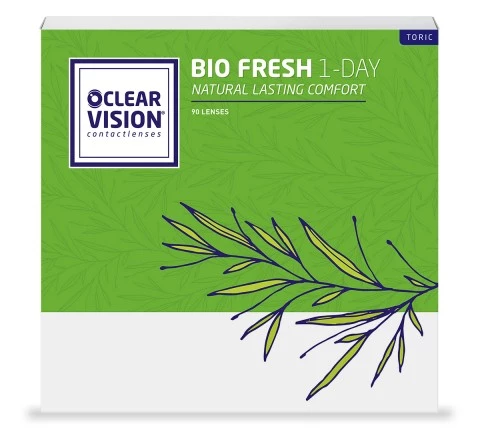
Do my contact lenses contain PFAS and how dangerous is it?
When it comes to our health, it's important to stay informed about the products we use every day. Recently, there have been reports suggesting that many soft contact lenses in the US are largely made up of PFAS "forever chemicals." In this article, we will delve into the research and shed light on the topic to help you understand the situation without unnecessary fear.
Popular contact lenses with high levels of organic fluorine
Testing of 18 popular contact lens brands found high levels of organic fluorine, a marker of PFAS, in each lens. While this raises concerns, it's essential to note that the presence of PFAS in contact lenses does not mean they are harmful to wearers. PFAS are a class of chemicals commonly used to make products water-resistant, stain-resistant, and heat-resistant. They are referred to as "forever chemicals" because they don't break down naturally and have been associated with health issues.
Chemistry of contact lenses
The chemistry of contact lenses is complex, and while the testing detected high levels of organic fluorine, indicating the presence of fluoropolymers, it does not necessarily mean the lenses are "almost pure PFAS." Fluoropolymers, a type of PFAS, are soft plastic materials used in disposable contact lenses due to their desirable properties. These properties include oxygen permeability, resistance to bacterial growth, and overall comfort.
How dangerous is PFAS in contact lenses?
There is limited research on the specific health impacts of PFAS exposure through contact lenses, as studies on how the eyes absorb PFAS from lenses have not been conducted. However, it is worth considering that the eyes may absorb some level of these chemicals, although fluoropolymers are generally less mobile forms of PFAS. It is also important to note that no studies have been done to investigate if the polymers in contact lenses convert into dangerous forms of PFAS once in the eye or contact packaging.
Conclusion
While the recent research findings on PFAS in contact lenses may raise concerns, it's crucial to approach the topic with a balanced perspective. Regulatory agencies have done little to address PFAS use in products, and there are ongoing discussions regarding what constitutes an "essential use" of these chemicals. As a consumer, it is challenging to protect yourself completely, but you can consider having a conversation with your eye care professional about possible alternatives. Remember, the industry is continuously evolving, and advances are being made to improve the safety and comfort of contact lenses. Stay informed, consult with your doctor, and enjoy the benefits that contact lenses provide to your daily life.


 EU
EU 








